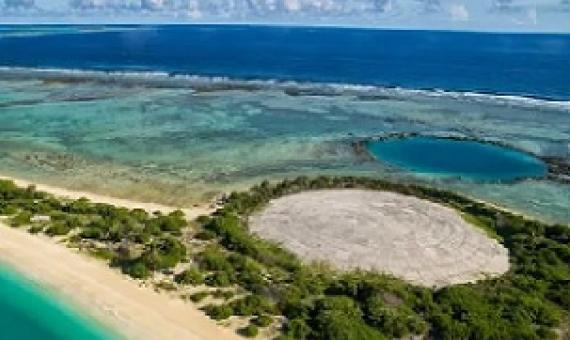The National Fish and Wildlife Foundation (NFWF) will award grants to improve the health of coral reefs and coral reef ecosystems.
Charles Moore, who first sailed the so-called Great Pacific Garbage Patch in 1997, has returned five times over 15 years to document the concentrations of plastic in the ocean. His results show microplastics are accumulating at a rapid rate.Click on the link below to read the full story.
A concrete dome holding the radioactive waste of 43 nuclear explosions is leaking into the ocean, veterans have warned. Click on the link below to read the full story.
Garbage like disposable diapers, plastic bags and snack wrappers is getting into the ocean and snagging on coral reefs, leading to deadly infections that literally eat the corals alive, a new study suggests.Click on the link below to read the full story.
From the stomachs of baby seabirds to the depths of the oceans " plastic pollution is everywhere.Click on the link below to read the full story.
In the past 50 years, the amount of water in the open ocean with zero oxygen has gone up more than fourfold. In coastal water bodies, including estuaries and seas, low-oxygen sites have increased more than 10-fold since 1950.
The head of the UN Environment's Pacific Office says protecting the oceans from plastic pollution is a high priority at the current global meeting in Kenya.Click on the link below to read the full article.
The current issue of Marine Ecosystems and Management, the sister newsletter of MPA News, features a review of the latest research on ocean plastics, with an audience of ocean managers in mind.
Chancellor to announce call for evidence on possible measures to cut use of plastics such as takeaway cartons and packaging.Click on the link below to read the full article.
Although they cover over 70 percent of the surface of the planet, the oceans of the world are under serious threat. Discover the ten biggest problems in the oceans right now.Click on the link below to read the full article.







